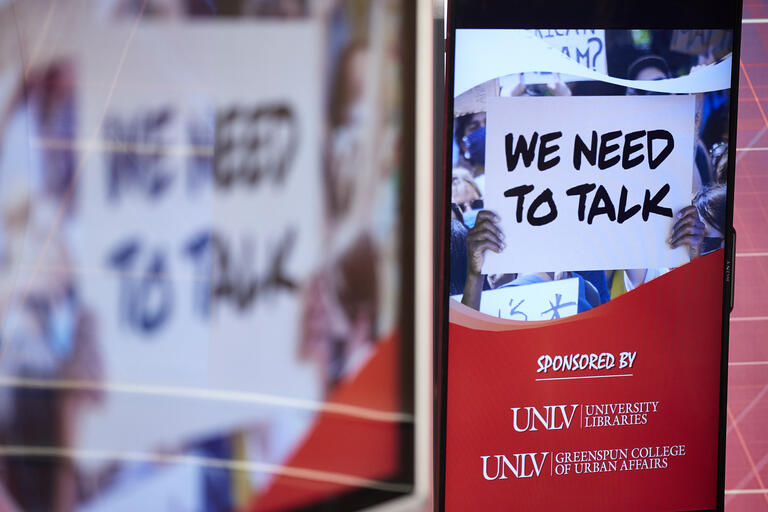WHAT
Students from the UNLV Howard R. Hughes College of Engineering put their undergraduate education to the test when they showcase year-long, commercially viable projects designed to solve everyday challenges at the Fall 2017 Fred and Harriet Cox Senior Design Competition.
WHEN
Thursday, Dec. 7, 2017
8 a.m. – 12:30 p.m. and 2 - 5 p.m.
WHERE
Artemus W. Ham Concert Hall, on the campus of UNLV (click for map)
Near Maryland Parkway and Cottage Grove Avenue
DETAILS
A capstone to every engineering student’s academic career at UNLV, the senior design project challenges students to use everything they have learned in their program to plan, design, create, and demonstrate a practical, real-world solution to an engineering challenge. Each student chooses, plans, designs, and prototypes an innovative, commercially viable product and presents their idea to a panel of industry judges.
More than 30 projects will be on display, including a pedestrian lighting system, a new pallet design for warehouses, a remote-controlled device that can detect IEDs, and a location-sharing app designed to encourage human interaction.
MEDIA
Interviews with participating students and College of Engineering representatives are available. Students will also conduct product prototype demonstrations.
Project Examples
Pedestrian Lighting Guidance System
Pedestrian fatality rate is three times higher at night, with 70% of pedestrians killed in the nighttime. Headlights only let a driver see approximately 350 feet ahead. The Pedestrian Lighting Guidance System (PLGS) can help alleviate pedestrian deaths due to poor visibility at night. Using pedestrian detection software, the PLGS will automatically control a spotlight whenever someone triggers it, without any burden on the pedestrian themselves, using OpenCV libraries, microprocessors and cameras.
Marco Polo App
Current social media apps provide a virtual location where people can “meet” others, but actually encourage less face-to-face interactions. The Marco Polo App provides the ability for users to share their location by initiating contact within their list of friends – “sending a Marco.” If the recipient accepts it, they “respond with a Polo,” and then their GPS locations will be shared with one another. The app provides a consensual and user controlled sharing of location and encourages users to stay physically and socially active by facilitating an easier way to meet up. The Marco Polo app’s goal is to augment more human-to-human interaction within the age of technology.
I.E.D. Rake
Since the early 2000s, 1,400 Americans have been killed and 13,000 wounded by I.E.D. blasts. The Pentagon has spent more than $75 billion trying to protect troops with armored vehicles and detection devices. The I.E.D. Rake is a remote controlled device, which takes the human operator, and their safety, out of the equation. (Large mine detectors currently use a human operator.) Additionally, with the large extension arms, the device doesn’t have to be directly over a bomb, like currently used rovers, to detect and detonate a mine.
OAR Pallet
The OAR Pallet plans to replace an outdated wooden pallet that was introduced in the 1930s and not improved upon since. Wooden pallets don’t offer much functionality and can restrict achieving higher warehouse efficiencies during truck loading and unloading. In contrast, the OAR Pallet will improve the general mobility of pallets in a warehouse and reduce loading and unloading times by: utilizing a coupling mechanism to connect multiple pallets together; offering a multi-directional wheel arrangement for maneuverability; and having an operator-friendly mechanical braking system.


